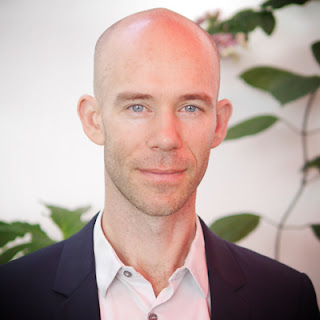Mr. Vincent Decap is the co-founder of Zero Plastic Oceans and a fellow speaker at the online eco-summit Vartalaap. With such an interestingly named initiative, I had to reach out for more details.
Vincent Decap, Co-founder, Zero Plastic Oceans
1. What inspired you to work in environmental cleanup
towards “Zero Plastic Oceans” and “contributing to a Greener Planet, step by
step”?
I guess that Zero Plastic Oceans (ZPO) is a result
of a mid-life crisis! I clearly felt a deeper interest and urge to try and use
my skills to the service of the environment. Zero Plastic Oceans is a project
that has materialized itself in that transition and has grown organically in
synergy with needs of the organizations fighting against Ocean Bound Plastic on
the ground.
ZPO's other co-founder explains OBP
2. Could you elaborated on ZPO’s “mechanisms and incentives
to encourage environmental cleanings focused on Ocean Bound Plastic.” How do
you go about changing attitudes that allow for trashing of our oceans, coasts
and beaches with devastating plastic waste?
Our direct role is not in changing attitudes, we are a standard-setter and as such our role is to help organizations working on clean
up getting recognized for what they do thanks to the transparency and
third-party verification that our certification brings. Especially in the field
of plastic credits (one of the subprogram of our OBP certification), which is a
very new market, using transparent standards and robust audits is key for
organization to obtain financing through selling credits.
OBP Certification
3. What influence do you think being in/from Panama has had on ZPO and you when it comes to your environmentalism and climate action?
Well, I had the
“opportunity” to pass daily going to my work at SUEZ in front of the beach, that's an easy reminder that what we are doing is needed. It is also
very useful to understand better where the roots of the problem lie and
collaborate closely with local partners who know first-hand the situation.
Adriana Amico, Co-founder, ZPO
Heng Hiap Industries, Johor, Malaysia was the first company to be OBP certified:
4. What is “Foundation Race for Water” all about?
That's a very nice project, launched about 12 years ago by
Marco Simeoni, with a vision to first understand plastic pollution at sea (R4W
is one of the first organizations that started to work scientifically on that
problematic with a visit to the 7 gyres in 2015) then educate people about it
and finally propose solution. R4W launched a 5 years odyssey, unfortunately
halted by COVID-19 in 2020. I was privileged to collaborate with them for 18
months and learnt a lot with the team.
You can get a lot of insights on Plastic Pollution visiting their website: https://www.raceforwater.org/
5. In light of the multiple media articles in late august that the current test run of The Ocean Cleanup system 2.0 (Jenny) was a failure and later praising the project in mid-October, what do you think of the Boyan Slat project, which controversially (to some circles) is partially funded by Coca-Cola the world’s largest plastic producer according to many audits.
I do not consider myself expert enough to comment on the technicalities but there is no doubt that collecting plastic already in the ocean is complex and costly, hence the focus we always had to work upstream on Ocean Bound Plastic (OBP) rather than ocean plastic. A focus that has always been the one of Ocean Cleanup's too since they always worked in parallel on the Interceptor project targeting river plastic.
6. The Ocean Cleanup’s river cleanup system The Interceptor
is supposedly more efficient and successful in river plastic cleanup wherever
deployed, especially in the so called Ocean Plastic source rivers of Asia! What
are your thoughts on it?
The efficiency of an
Interceptor or any device that does the same job is going to be much higher
than cleaning at high seas since the conditions are easier to control and the
waste is not so dispersed. This seems common sense. The cost of collecting this
plastic is way less and it has a better environmental impact since plastic has
less time to sink, degrade or kill wildlife.
7. Could you explain how the efforts of ZPO align with climate action? How does solving the plastic waste crisis and ocean plastic problem help in taking a stand working to slow down climate change and the impending Climate Catastrophe.
We are acting towards
environmental protection, wildlife preservation, and part of our program also
favors recycling, all of this has positive impacts in terms of reduction of greenhouse gas (GHG) emission or absorption of GHG. However it would be misleading to insinuate that
the OBP Program has a strong positive impact on GHG like proper reforestation
projects or regenerative agriculture or life style changes do.
ZPO & the OBP certification along with Plastic Credits aid in SDG12 - Responsible Consumption & Production & controls GHG emissions, but for effective Climate Action (SDG13) priority should be to protect rainforests and old growth forests, reforestation, ecosystem restoration (where collecting OBP has a real impact) & regenerative agriculture.
8. What has been the most memorable and personally rewarding
memory and/or activity of ZPO and your efforts contributing to a Greener
Planet?
I retain a global
pleasure of doing what we are doing with the team and interacting with many
people across the world who are passionate about what they are doing and really
fully invested in it. I could not separate a most memorable moment.





Comments
Post a Comment